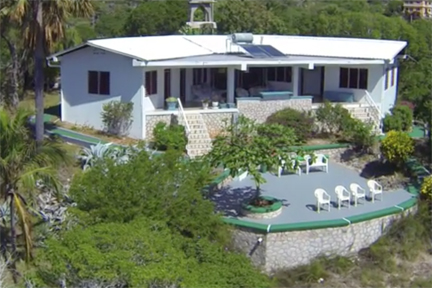First published in borrowed solace June 10, 2022
Samantha Williams was just 17, blossoming into her senior year. She hadn’t yet been invited by a bevy of Ivy League colleges, but everyone assumed she would be. She and Howard Cummings  were the most-admired steady couple in the student body. One was expected to be salutatorian and the other, valedictorian; they were not competitors but collaborators, deeply in love. Life couldn’t have been going better.
were the most-admired steady couple in the student body. One was expected to be salutatorian and the other, valedictorian; they were not competitors but collaborators, deeply in love. Life couldn’t have been going better.
Then a few mornings’ nausea and a missed period announced an unexpected chapter in their lives.
She told her mother even before Howard. She wanted to get the anger – if not initial rejection – over with, hoping then to move on to grudging help. It would take little short of divine intervention to assuage a father who had thought her junior prom gown revealed more skin than any decent girl should expose.
Mom was on the governing committee of Westminster Church, had been PTA president, volunteered with Loaves and Fishes; had, in short, earned all the badges of middle-class propriety. Yet to Samantha’s surprise, she was immediately sympathetic and supportive, an absolute saint. “Sweetie, I’m sorry you couldn’t wait, and especially sorry you weren’t careful enough. But – can I tell you something, absolutely just between mother and daughter?”
“Why. . . why sure, Mom. Absolutely.”
“Well, dear, the anniversary your Dad and I celebrate every year is a fake. He growls about you and Howard, but that’s maybe because he’s been there.”
“I don’t get it, Mom.”
“When I learned I was pregnant, your Dad knew a justice of the peace in a nearby town who would not only marry us quietly, but would date the certificate a month earlier.”
“Mom! That was me?”
“Of course.”
“Then I should keep this one, the way you kept me!”
“Samantha, my darling, we had no choice. We were dirt-poor. Our parents were ready to throw us out. In fact, I’m glad we kept you; you’re a wonderful daughter. But you have a bright career ahead, a whole world of opportunities I never had, a world that would be denied a too-young mother.”
So Samantha and Howard weighed their options. Both sets of parents had slaved, scrimped and struggled to earn footholds on Dallas’ suburban staircase. The two would be the first in either family to go to college; with siblings coming behind, both would need major scholarship help. They had talked of marrying four years from now, before grad school, but even then had agreed not to start a family until careers were well under way.
Abortion was the first option explored. Threshold step: None of the parents were philosophically or religiously opposed. But this was 1969; abortion was legal only in Hawaii or Canada. Neither family could afford that kind of travel. Any local alternatives were seen as illegal quacks; no one wanted Samantha in such hands.
A lawsuit challenging the Texas ban on abortion had recently been filed, but it would be four more years before the Supreme Court would rule in the landmark case that would become known as Roe vs. Wade. No help to Samantha.
A sympathetic and wise high school counselor, Mrs. Casey, sworn to secrecy, put them in touch with Planned Parenthood in Houston, a half day’s drive. They went together to spend an hour with a Mrs. Burbank, who thought the best solution was to find someone who wanted and could afford a child.
“Give my baby up for adoption?”
“That’s not the way to think of it, dear. Not ‘giving up’ your child. Rather, relinquishing your role, so your baby can have a better life and future in a family than can afford the best.”
“But they’d adopt my . . . our baby?”
“Yes.”
“Can we meet them and talk about it?”
“Probably not. Adoptive parents usually want to be sure the child becomes entirely theirs. I’ll have to look around. We have a short list of people who want to adopt, although I have in mind one couple in particular.”
“What are they like?”
“They’re unable to have children of their own; they’ve been trying for years. They’re exceptionally well-educated, and well-off; they want a child likely to be a college candidate. The two of you, with your academic accomplishments, seem perfect birth parents.”
“But we . . . wouldn’t even meet them?”
“I’ll ask, but I suspect not. Why don’t you two think about it? I’ll approach them. Then if you decide on relinquishing, you can come back and sign the papers.”
Which is what happened: It was arranged that the “well-educated couple” would send someone, and adopt the child, within weeks of its June birth. Howard readily accepted that they would never meet the adopting couple, nor even know their names, and would never see their child again. Samantha was reluctant, but her Mom persuaded her that was the best course.
l
As a still-new resident of Harmony Acres Senior Living, Samantha thought that was all behind her. She had put it all behind. She’d outlived or moved away from anyone who knew anything about the trauma of that year. By mere longevity and distance, it had become an absolute secret, whose inviolability was a huge comfort. She hardly thought about that year anymore, except occasionally to envy, in a disengaged way, latter-day young women who had options she’d been denied.
Suddenly, though, the Supreme Court was reconsidering that Texas decision, and it seemed that everyone at Harmony Acres wanted to talk about abortions and about pregnant, unwed girls.
She’d moved into The Acres, as everyone called the place, as soon as she turned 70 and was eligible. She had hardly settled in when the pandemic struck and lockdown began; she hadn’t gotten really to know many of her neighbors in the past two years. Now, at last, The Acres was emerging from the cocoon of self-isolation; everyone wanted to talk, as though making up for lost dialogue.
Women outnumbered men, of course, so most conversations as she finally got to know people were with women. A disproportionate number of them, it seemed, had been high school teachers or counselors or had volunteered in programs for young people, so had known or counseled pregnant girls – and so were eager to talk about Roe vs. Wade.
Samantha found herself emotionally tiptoeing around her new friends as distant memories flooded back.
l
The baby was due in June. In early May, with maybe six weeks to go – assuming the doctor had it right – Samantha decided she had to keep the child.
Her pregnancy had been almost boringly easy. Mom had an older sister who was widowed; she lived alone and ran a ranch near Waco, less than two hours away. Aunt Bess was a tough old lady who, as she put it herself, didn’t give a damn whether a pregnant girl was married; she was delighted to have company. She thoroughly checked out credentials, chose a local obstetrician and attended every visit. She found a just-retired teacher to tutor her bright niece on a strict regimen and schedule, as a remote student still a member of North Dallas High’s Class of 1970 and absolutely still on her way to college.
As far as Samantha’s friends knew, her absence was because Aunt Bess was a frail old lady who couldn’t afford hired help and needed care and company in her illness, an unnamed but debilitating and predictably terminal disease. Mrs. Casey, that sympathetic guidance counselor, supervised the tutorials sufficiently that Samantha would graduate with her class, albeit remotely and having to give up class rank.
And giving up the baby? What triggered her change of heart was Howard’s decision to enlist for the war in Vietnam.
He had visited her in Waco every few weeks, which was wonderful even though Aunt Bess made certain that there was nothing more intimate than a kiss and hug. Howard’s father had served in World War Two honorably but without distinction. An older brother, however, had been a war hero. Uncle Charlie was sure that service in Vietnam would open a vista of opportunity for Howard. That prospect, he insisted, made it worth postponing college, lest the war end and the chance for military glory be denied.
It did not occur to Uncle Charlie that Howard might come back from Vietnam seriously wounded, let alone in a body bag. Howard accepted his uncle’s sunny optimism; he would begin basic training and officer’s training the day after graduating from North Dallas. He might be on some distant base, or even on his way across the Pacific, when the baby was born.
Unlike Uncle Charlie, Samantha feared the worst. If Howard did not survive Vietnam, she decided, she should at least have his son to grow up with her. (By whatever magical portents it was decided in those days – this was long before ultrasound made gender predictions routine and certain – she was sure the baby would be a boy, and had begun thinking of it as Baby Howie.)
Mom took a day off to drive to Waco to pick Samantha up, and then had her do the driving to Houston to tell Mrs. Burbank at Planned Parenthood of her decision. Howard, between final exams and toughening-up stays with his war hero uncle, hadn’t been able to visit for several weeks, so there’d been no opportunity to tell him of her decision, let alone have him come with her to Houston. It was too complex to talk about by phone; she would tell him when it was done.
“Are you really sure, dear?” Mom asked along the way. “I mean, it’s a miracle that Radcliffe understood your situation and even admitted you, let alone the scholarship! They’re almost sure to change their minds if you want to postpone.”
“Mom, I’m afraid Howard will die over there.”
“That’s morbid, dear.”
“It’s not! The paper the other day said one in ten is comes home a casualty. Something like twelve thousand Americans died last year alone!”
“Still. He’s going to be an officer.”
“Officers get shot, too, Mom.”
“Samantha, I’m here because I want to be supportive, but your Dad and I think it’s not a good idea to change your mind. We’d so looked forward to having our smart daughter in college.”
“Don’t natter me!”
“We could turn around at the next exit and no one would blame you.”
“Mom, if anything happens to Howard, I want to bring up his son.”
So they went on to Houston, where Mrs. Burbank put a quick end to it. The adopting parents had a contract. They would almost surely insist on completing the adoption; if it came to a legal contest, they could afford a very good lawyer to be sure they won. And by the way, they’d been generous, even helping Samantha with those obstetrician bills.
And the clincher: Samantha couldn’t abrogate the contract then and there anyway, since Howard had signed, too. She couldn’t imagine explaining to him why it was so important that she have their child to bring up.
It was the hardest day of her young life. She cried with Mrs. Burbank, and cried walking to the car. Mom had to do the driving because Samantha’s eyes kept welling up with tears.
At last, she resigned herself to “relinquishing,” and went back to finish her studies. She listened to the graduation ceremonies on a very expensive long-distance telephone call. Howard came to Waco the next day on his way to training, and took her to lunch; she managed not to cry, and not to tell him of her fears. He would, he promised, almost surely be able to get a day off to come see her right after the baby came.
It came soon, a day earlier than the doctor had predicted. Mom didn’t arrive until Baby Howie was all cleaned up, pink and healthy, in Samantha’s arms and being guided to his first suckle. Howard came next day to hold his son in his arms, and posed with Samantha and the baby while Mom took photos that would one day find their way to her smartphone and be always with her.
Ten days later, Mrs. Burnham from Planned Parenthood arrived, accompanied by another brand-new mother who had been hired to nurse Samantha’s baby along with her own. Samantha was left with achingly full breasts and empty arms, her motherhood ended.
The rest of that year was a rollercoaster of emotions. Radcliffe proved challenging and stimulating; her classmates welcomed the new arrival from “out West,” and some became warm friends. They were sympathetic and supportive when Howard was among two dozen lost when their plane crashed into someplace called the Gulf of Tonkin; she could not bring herself to tell them that she had lost not only Howard but his child as well.
Mrs. Casey and Mrs. Burbank both came to the funeral service – pompously, gratingly military, she thought – and joined Mom in persuading her that she had to go back to Massachusetts and make the best of the opportunity before her. Howard, they were sure, would have wanted her to carry on.
So she did, and four years later graduated top of her class. Harvard Law was eager to enroll her, and – having in all those years wasted no time or energy in further motherhood, marriage or even dating – she was near the top of that class, too. She had her choice of distinguished law firms, but chose to work with a Rutgers professor named Ruth Bader Ginsburg on a series of cases for the American Civil Liberties Union. She became a Ginsburg protegé; when President Jimmy Carter named her mentor to the U.S. Court of Appeals for the District of Columbia, Samantha became her law clerk.
Two years later, she herself joined the Rutgers law faculty, following Judge Ginsburg’s model and probably at the judge’s intervention. A decade later, she was nominated by President Bill Clinton to be a federal judge in Camden.
And there in New Jersey she stayed the rest of her working life, earning a reputation among lawyers as a solid, serious judge. She almost never handled the kind of notorious, newsworthy case that might have made her a celebrity when she moved to a nearby retirement community; she arrived at The Acres as unheralded as most feminine pioneers of her generation.
l
Nonetheless, that rich judicial history would in time surely make her a prime candidate to be featured on “My Story”, one of the programs most popular among Harmony Acres women. That would come, Samantha was confident, now that they were finally meeting in person. She had half-begun rehearsing; she would skim and skip through high school and begin her substantive narrative at Radcliffe.
Zoom had been a barely adequate substitute for the monthly live sessions, but she’d been an unfailing participant, sitting alone in her apartment in front of her laptop. That had left little opportunity for the getting-to-know-you kind of chat with neighbors before and after formal meetings that might have helped make her better known.
On the other hand, it might have been a plus had they still been meeting remotely, she thought this morning: If bored, she might just quietly turn off the computer and go read a good book. Instead, here she was in the front row. She could hardly get up and walk out; it would be making a scene.
Not that she expected to be bored. She’d come early to get a good seat because she really wanted to hear Caroline Sundquist. A pioneer in the field of child psychiatry, Mrs. Sundquist had written a book that was cited in a case before Samantha a decade ago, and she’d quoted the book in her ruling. Now here was the author herself, a neighbor! And today was an opportunity to hear her elaborate on her studies.
The My Story format was unusual at The Acres, largely thanks to Millie Howard, a resident who’d enjoyed a long career in television, and who made it like a Sunday morning TV interview. “Caroline Sundquist,” Millie began, “is known to most of us for her work in child psychiatry. Today, though, she wants to begin by talking about her family. She and her late husband had one child, a son, who lives today in Texas; and they have a grandson of whom I gather we’ll hear more a bit later.”
Texas? wondered Samantha. Mrs. Sundquist was an older woman, probably well into her eighties. Sitting there being introduced, she looked as regally well-preserved as Queen Elizabeth. And her voice was clear and forceful as she began on a topic entirely unexpected. “There has been a lot of talk about abortion,” she began, “and I happen to be example of alternatives to abortion.”
Oh, dear! Maybe I should slip away after all.
“I have told very few people my story,” Mrs. Sundquist went on. “But it seems worth sharing in this era of insistence on the right to abortion reflected in Roe vs. Wade. You see, my late husband and I, living in Fort Worth, adopted an infant whose parents couldn’t or didn’t want to keep him. If abortion had been legal back then in Texas, I suspect our little boy would have been instead a mere statistic.”
Fort Worth! Samantha thought again about leaving, but felt chained to her chair.
“We had been unable to conceive a child of our own,” Mrs. Sundquist said, “and we went to a then-new organization called Planned Parenthood, thinking we might find a child to adopt. We were chary about adopting, because you never knew exactly what characteristics such a child might inherit. And arranging to adopt a child before it was born was something we had never even considered.”
My Lord! She must be the one who adopted Howie!
“The parents were still in high school,” she went on, “but were at the top of their class, and likely to be the first in their families to go on to college. My husband and I could not only have the child we craved, but could perhaps help a young couple fulfill the American dream.”
It is! She’s the one!
“And did they in fact go to college?” Millie asked, playing the role of TV interviewer.
“We never knew,” Mrs. Sundquist answered. “We wanted the child to be entirely ours, so the whole thing was arranged ‘blind,’ so to speak. They never knew who we were, nor did we know who they were. We never met. I can only hope their lives worked out well.”
I know! I know! Tell how my baby Howie’s life worked out!
It was as though Millie were reading Samantha’s mind. “All right,” she prompted. “Tell us how the adoption worked out.”
“Better than we could ever have hoped. Our Chuck (we named him after my husband Charles, but the nickname came early and is his professional name today) turned out to be bright and well-behaved, a perfect child. He went on to college and graduate school, and started a small insurance business back in our town, so that we were able to nourish his marriage and watch his son, our grandson, grow up in kind of an extended family.”
“And,” Millie prompted, “when did he learn that he was adopted?”
“Never. To this day, he doesn’t know. I guess he will now, though, because our grandson Peter is here with us today; I’ll ask him to wait and let me phone his father this afternoon, so I can be the first to tell him. Peter, why don’t you stand up for a moment so my friends here can meet you?”
A tall young man stood up at the side of the room, smiling and waving to the audience.
Good Lord! It’s Howard! My Howard, the spitting image!
“Peter is just graduating Harvard this June,” Mrs. Sundquist said, “and hopes to go on to Harvard Law. We’re not sure where he got the inclination to be a lawyer – perhaps it’s in that genetic heritage we’ve never known – but we’re glad to support him.”
Samantha heard no more of the day’s My Story; her brain was awash. She got out her smartphone as unobtrusively as possible, and opened her photo album to find the one Mom took of Howard and the baby that day in Waco. She looked up again at Peter Sundquist, who had resumed his seat on a back corner of the little stage. Sure enough! This ancient photo of my one true love could have been taken yesterday of . . . of his grandson, right?
Whom should she speak to first? Peter? Peter, you have no reason to know me, but I am your grandmother, maybe I should say your blood grandmother, and this photo, taken in 1970, is your grandfather. See what a resemblance!
No, it would be impetuous and impolite not to speak first to the dowager of that Texas clan. Mrs. Sundquist, you don’t know me, but you raised my son. Here’s a photo of my husband, that boy’s blood father. Isn’t he the spitting image of your grandson? . . . of my grandson? . . . of our grandson? Does Peter resemble his father? Oh, there is so much to talk about!
Waiting was almost unbearable, but Samantha held back while the session ended and others spoke to Mrs. Sundquist and Peter. Finally, when everyone else was leaving and Peter started over to help his grandmother to her feet, Samantha stood too.
Hurrying but hesitant, she walked over to join them – and begin another unexpected chapter of her life.
-End-






Don, I just finished your story found it refreshing to read some thing with a happy ending. (Or so I assume). Thank you for making it available. I hope all is well with you.
John
Thanks, John. Yes, I thought it a happy ending. Did you read the one before that, the “aeronautical lawn chair”? That was not only a happy ending but one with I think a chortle or two along the way.
Yes, I’m well. Neuropathy worse, and I can’t stand up without a steadying prop or walker, but can’t complain; the hardware from the neck up still works reasonably well.
Might you be tempted to come up for dinner some night? We’re still limited on dining room meals — more staff shortages than COVID concerns — but I’m allowed to have guests Wednesday evenings.